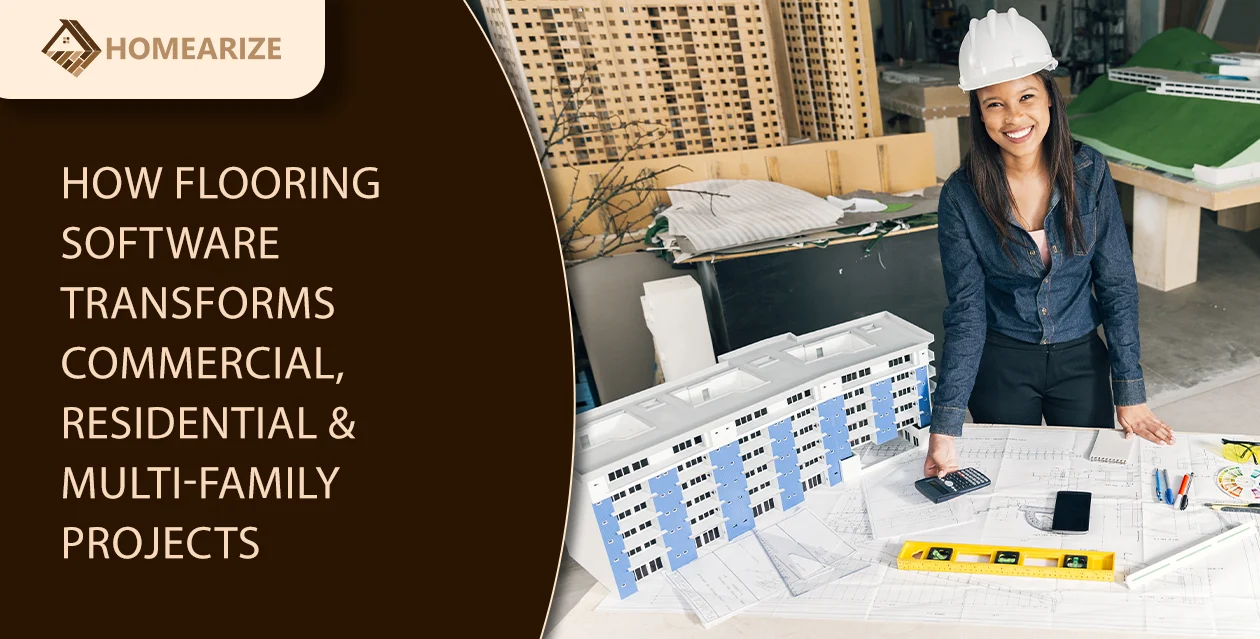
Managing a flooring business comes with unique challenges, from estimating costs to scheduling installations. Whether you specialize in commercial, residential or multi-family projects, using the right flooring software can streamline operations and improve efficiency. In this guide, we’ll explore how flooring software benefits each industry and what features to look for.
Handling flooring projects involves various tasks like inventory management, cost estimation and client communication. Manual processes can lead to errors, project delays and lost revenue. That’s where flooring software helps by automating workflows and providing accurate project tracking.
Faster & More Accurate Estimates
Streamlined Scheduling & Project Tracking
Better Customer Management & Invoicing
Integration with Accounting Tools
Mobile Access for On-site Project Updates
Commercial flooring companies handle large-scale installations for offices, retail stores and industrial buildings. Managing multiple projects, meeting tight deadlines and tracking material usage require efficient software solutions.
Advanced Estimating Tools – Generate quick and accurate bids
Project Scheduling & Workforce Management – Assign tasks and track progress
Inventory Tracking – Ensure materials are available for each job
Invoicing & Payments – Automate billing and payment collection
A flooring contractor bidding on a corporate office renovation can use software to calculate material costs, labor hours and project timelines in minutes.
Residential flooring projects, whether for new homes or renovations, demand attention to detail. Homeowners expect transparent pricing, quick estimates and timely project completion.
Instant Estimate Generation – Provide homeowners with accurate quotes
CRM & Customer Communication – Keep track of client interactions
Mobile App Access – Update project details on the go
Digital Contracts & E-signatures – Speed up approvals
A small flooring business can use software to create and send professional-looking quotes to homeowners, reducing delays in project approvals.
Multi-family flooring projects, such as apartments and condominiums, require bulk ordering, phased installations and efficient communication with property managers.
Bulk Estimating & Bidding – Quote multiple units in one go
Job Costing & Budgeting – Monitor expenses for different properties
Workflow Automation – Track progress across multiple units
Cloud-Based Access – Manage projects from anywhere
A flooring company working on a 200-unit apartment complex can use flooring software to track installations per unit, ensuring deadlines are met.
With various flooring software options available, choosing the right one depends on your business size, project type and required features. Consider the following:
Ease of Use – Does the software have an intuitive interface?
Customization – Can it be tailored to your specific workflow?
Integration – Does it sync with accounting and CRM tools?
Scalability – Can it grow with your business?
Whether you specialize in commercial, residential or multi-family flooring projects, investing in the right flooring software can save time, reduce errors and increase profitability. By automating key processes like estimates, scheduling and invoicing, you can focus on growing your business while delivering top-notch service. Learn More.